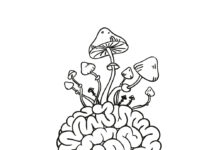In a new article in The BMJ, researchers expose how regulatory bodies approve psychedelic drugs for psychiatric use despite poor quality evidence riddled with biases. The researchers “highlight weaknesses in the evidence on efficacy and safety of hallucinogens and question the use of expedited regulatory pathways.”
“Health authorities must require standard regulatory pathways over accelerated ones,” they write. “Otherwise, they set a concerning precedent and encourage research of degraded quality, whose numerous inconsistencies are not up to standards.”
The lead writers of the article were Cédric Lemarchand and Florian Naudet at the University of Rennes, France. Other authors on the international team included Lisa Cosgrove, Erick Turner, Ioana Cristea, and more.
















It seems more people jump on the bandwagon more quickly in psychiatry than in any other profession. All in for the latest magic pill or treatment. I’ve had doctors — reputable ones otherwise — perfectly willing to give me ketamine or esketamine after one brief virtual appointment with no medical history. The same people of course who have freely handed out ADs and antipsychotics and benzos and whatever for years. It’s all good after all. Evidence? Research? Nah.
Report comment